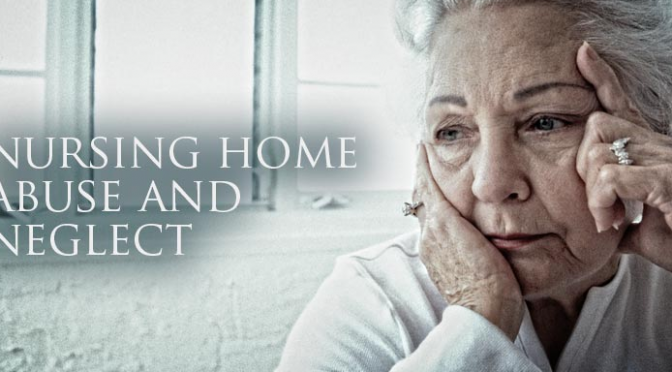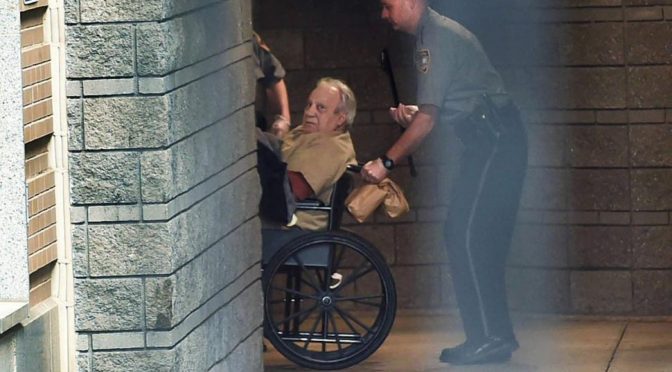As a resident in a Medicare and/or Medicaid-certified nursing home, you have certain rights and protections under federal and state law that help ensure you get the care and services you need.
The nursing home must tell you about these rights and explain them in writing in a language you understand. They must also explain in writing how you should act and what you’re responsible for while you’re in the nursing home. This must be done before or at the time you’re admitted, as well as during your stay. You must acknowledge in writing that you got this information.
At a minimum, federal law specifies that a nursing home must protect and promote the rights of each resident. As a person with Medicare, you have certain guaranteed rights and protections. In addition to these rights, you also have the right to:
Be treated with respect
You have the right to be treated with dignity and respect, as well as make your own schedule and participate in the activities you choose. You have the right to decide when you go to bed, rise in the morning, and eat your meals.
Participate in activities
You have the right to participate in an activities program designed to meet your needs and the needs of the other residents.
Be free from discrimination
Nursing homes don’t have to accept all applicants, but they must comply with local, state, and federal civil rights laws.
Be free from abuse and neglect
You have the right to be free from verbal, sexual, physical, and mental abuse, as well as abuse of your money or property (called “misappropriation of property”). Nursing homes can’t keep you apart from everyone else against your will.
If you feel you’ve been mistreated (abused) or the nursing home isn’t meeting your needs (neglect), report this to the nursing home administrator. Depending on your state, the agency that investigates abuse and neglect will be Adult Protective Services and/or the State Survey Agency. The nursing home must investigate and report all suspected violations and any injuries of unknown origin within 5 working days of the incident to the proper authorities. The Long-Term Care Ombudsman can also help by being your advocate and helping you resolve your concerns.
Be free from restraints
Nursing homes can’t use any physical restraints (like side rails) or chemical restraints (like drugs) to discipline you or for the staff’s own convenience.
Make complaints
You have the right to make a complaint to the staff of the nursing home or any other person without fear of being punished. The nursing home must address the issue promptly.
Get proper medical care
You have these rights regarding your medical care:
- To be fully informed about your total health status in a language you understand.
- To be fully informed about your medical condition, prescription and over-the-counter drugs, vitamins, and supplements.
- To be involved in the choice of your doctor.
- To participate in the decisions that affect your care.
- To take part in developing your care plan. By law, nursing homes must develop a care plan for each resident. You have the right to take part in this process. Family members can also help with your care plan with your permission.
- To access all your records and reports, including clinical records (medical records and reports) promptly during weekdays. Your legal guardian has the right to look at all your medical records and make important decisions on your behalf.
- To express any complaints (also called “grievances”) you have about your care or treatment.
- To create advance directives in accordance with state law.
- To refuse to participate in experimental treatment.
- Have your representative notified. The nursing home must notify your doctor and, if known, your legal representative or an interested family member when:
- You’re injured in an accident and/or need to see a doctor.
- Your physical, mental, or psychosocial status starts to get worse.
- You have a life threatening condition.
- You have medical complications.
- Your treatment needs to change significantly.
- The nursing home decides to transfer or discharge you from the nursing home.
- Get information on services and fees. You have the right to be told in writing about all nursing home services and fees (those that are charged and not charged to you) before you move into the nursing home and at any time when services and fees change. In addition:
- The nursing home can’t require a minimum entrance fee if your care is paid for by Medicare or Medicaid.
- For people seeking admission to the nursing home, the nursing home must tell you (both orally and in writing) and display written information about how to apply for and use Medicare and Medicaidbenefits.
- The nursing home must also provide information on how to get a refund if you paid for an item or service, but because of Medicare and Medicaid eligibility rules, it’s now considered covered.
- Manage your money. You have the right to manage your own money or choose someone you trust to do this for you. In addition:
- If you deposit your money with the nursing home or ask them to hold or account for your money, you must sign a written statement saying you want them to do this.
- The nursing home must allow you access to your bank accounts, cash, and other financial records.
- The nursing home must have a system that ensures full accounting for your funds and can’t combine your funds with the nursing home’s funds.
- The nursing home must protect your funds from any loss by providing an acceptable protection, like buying a surety bond.
- If a resident with a fund passes away, the nursing home must return the funds with a final accounting to the person or court handling the resident’s estate within 30 days.
- Get proper privacy, property, and living arrangements. You have these rights:
- Keep and use your personal belongings and property as long as they don’t interfere with the rights, health, or safety of others.
- Have private visits.
- Make and get private phone calls.
- Have privacy in sending and getting mail and email.
- Have the nursing home protect your property from theft.
- Share a room with your spouse if you both live in the same nursing home (if you both agree to do so).
- Be notified by the nursing home before your room or your roommate is changed. They should take your preferences into account.
- Review the nursing home’s health and fire safety inspection results.
- Spend time with visitors. You have these rights:
- Spend private time with visitors.
- Have visitors at any time, as long as you wish to see them, and as long as the visit doesn’t interfere with the provision of care and privacy rights of other residents.
- See any person who gives you help with your health, social, legal, or other services at any time. This includes your doctor, a representative from the health department, and your Long-Term Care Ombudsman, among others.
- Get social services. The nursing home must provide you with any needed social services, including:
- Counseling.
- Help solving problems with other residents.
- Help in contacting legal and financial professionals.
- Discharge planning.
- Leave the nursing home:
- Leaving for visits:
- If your health allows, and your doctor agrees, you can spend time away from the nursing home visiting family or friends during the day or overnight, called a “leave of absence.” Talk to the nursing home staff a few days ahead of time so the staff has time to prepare your medicines and write your instructions.
- Caution: if your nursing home care is covered by certain health insurance, you may not be able to leave for visits without losing your coverage.
- Moving out:
- Nursing homes may have a policy that requires you to tell them before you plan to leave. If you don’t, you may have to pay an extra fee.
- Leaving for visits:
- Have protections against unfair transfer or discharge:
- You can’t be sent to another nursing home or made to leave the nursing home, unless any of these are true:
- It’s necessary for the welfare, health, or safety of you or others.
- Your health has improved to the point that nursing home care is no longer necessary.
- The nursing home hasn’t been paid for services you got.
- The nursing home closes.
- You have these rights:
- You have the right to appeal a transfer or discharge.
- The nursing home can’t make you leave if you’re waiting to get Medicaid.
- Except in emergencies, nursing homes must give a 30-day written notice of their plan and reason to discharge or transfer you.
- The nursing home has to safely and orderly transfer or discharge you and give you proper notice of bed-hold and readmission requirements.
- You can’t be sent to another nursing home or made to leave the nursing home, unless any of these are true:
- Form or participate in resident groups:
- You have a right to form or participate in a resident group to discuss issues and concerns about the nursing home’s policies and operations. Most homes have such groups, often called “resident councils.” The home must give you meeting space and must listen to and act upon grievances and recommendations of the group.
- Have your family and friends involved:
- Family and friends can help make sure you get good quality care. They can visit and get to know the staff and the nursing home’s rules. Family members and legal guardians may meet with the families of other residents and may participate in family councils, if one exists. With your permission, family members can help with your care plan. If a family member or friend is your legal guardian, he or she has the right to look at all medical records about you and make important decisions on your behalf.
Sourced From – https://www.medicare.gov/what-medicare-covers/part-a/rights-in-nursing-home.html





